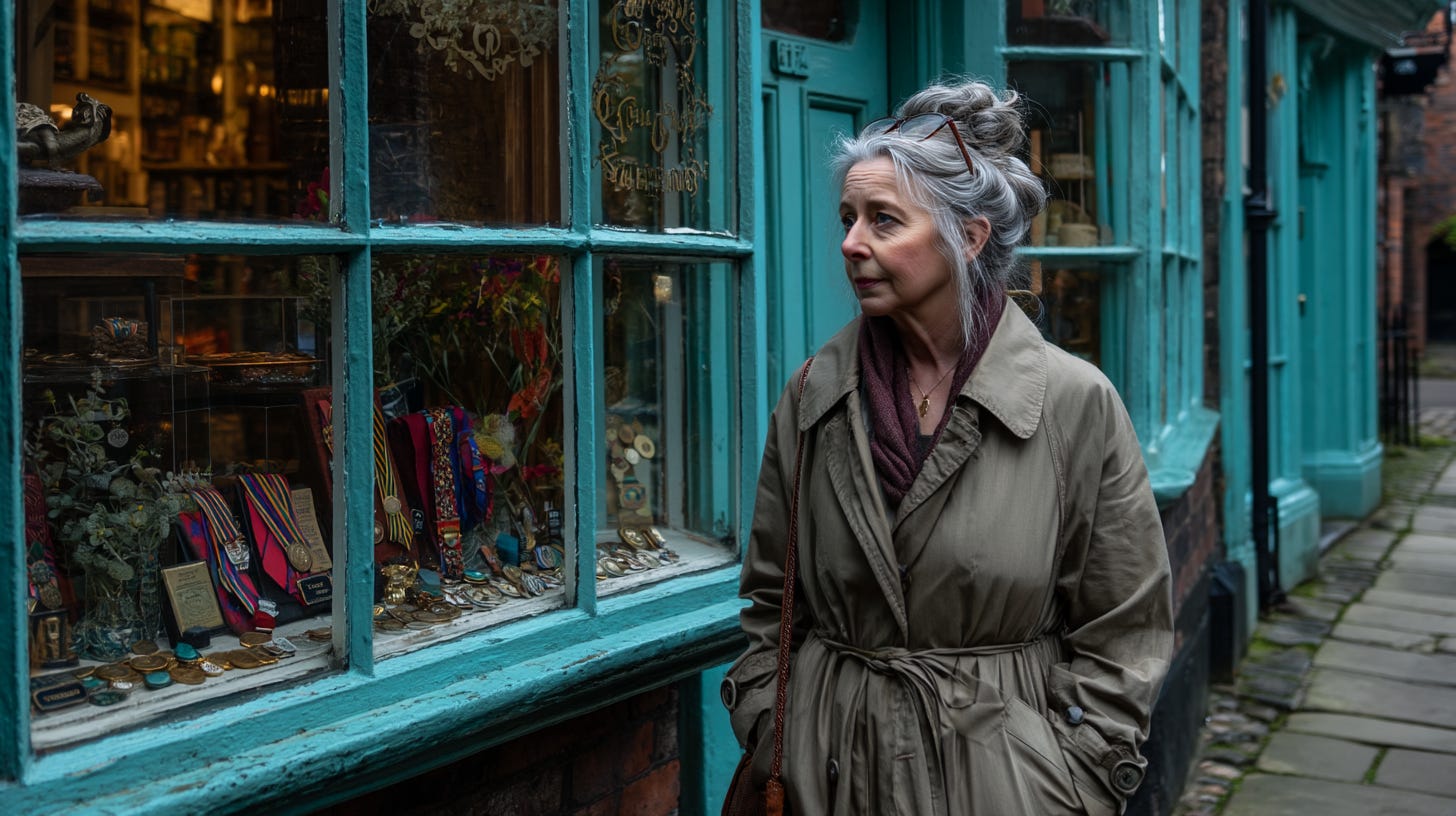It began with a flyer.
“CULTURE, CAKE & CAMARADERIE,” it shouted, in type so bold it startled the marrow beds.
The Women’s Institute outing had been declared. This year: York.
A city of history, cobbles, and gift shops that smelled faintly of lavender and regret.
Maggie hadn’t planned to go. But when Audrey Crenshaw said, “We’ll need all hands for the group photo,” Maggie packed a small bag and left her expectations at home.
The coach departed at 8:03, three minutes late, thanks to Netta Flinn’s emergency footstool. Audrey called it a tripping hazard. Netta called it foresight.
By eleven they were in York. The itinerary was laminated, colour-coded, and—according to Audrey—“optimised for enrichment.” There was a cathedral tour, a scheduled pudding interval, and forty-two minutes allotted for “free exploration,” which Maggie immediately translated as the bit where things go wrong.
She slipped away at the start of the tour, citing a sudden interest in medieval plumbing. In truth, she had her eye on an antique shop down a side street—the sort that smelled of wood polish and unresolved estates.
The window displayed war medals, faded postcards, and a taxidermied squirrel holding a banjo. Maggie felt oddly seen.
Inside, she picked up a brooch—Art Deco, not Edwardian as labelled, and priced insultingly. That’s when the past appeared.
A woman at the scarf rack.
Her hair shorter. Posture altered.
But the line of her neck, the tilt of her head—those hadn’t changed.
Maggie’s stomach lurched. She steadied her hand against a shelf.
Their eyes met.
Her smile broke.
Maggie thought she heard the cadence of a voice she knew, rising in memory before it sounded in the shop.
“Excuse me,” she said softly. “Do I—?”
And then Reginald Smythe-Harrington materialised from the medals section, one hand cradling a 1939 Star, the other resting lightly on Maggie’s elbow.
“There you are, darling,” he said, with the authority of a man who once commanded platoons and still terrified checkout queues.
“I was beginning to fear you’d been lured away by Bakelite and sentiment.”
The woman blinked. Maggie blinked.
Reginald’s smile was the kind that signed treaties.
“Oh,” the woman said. “I didn’t mean to intrude—”
“No intrusion at all,” Reginald replied. His thumb tapped once against the medal box.
“Happens all the time. People thinking they recognise her. Film work, you see. Nothing terribly mainstream.”
The woman faltered, then nodded, apologetic, and left.
The door shut on her absence.
“Film work?” Maggie said.
“You’re welcome.”
They walked down the street, past a café advertising Artisan Sausage Rolls with suspicious zeal.
“I was going to tell her,” Maggie said.
Reginald didn’t look at her.
“You don’t owe anyone your story,” he said. “Not unless you choose to share it.”
“I almost did.”
“Almost is a perfectly respectable distance. Many a war’s been won by staying just shy of something foolish.”
A group of tourists photographed a pigeon with unearned confidence.
“I owe you a scone,” Maggie said.
“I’ll take tea,” Reginald replied.
“And plausible deniability.”
Back on the coach, Audrey bristled about the cathedral’s “modern seating arrangements,” while Netta unwrapped a fig bar like it was evidence.
Maggie opened her notebook.
She flipped past biscuit treaties and gnome incursions, her fingers pausing on the margin, then began a new page.
Case #27: A Respectable Distance
Observation: Recognition is a tricky beast.
Outcome: Intercepted with medals and grace.
Additional note: [entry withheld]
She tapped the page, then closed the book.
Forty-two minutes, “optimised for enrichment.”
Some stories aren’t for solving. Just seeing.


